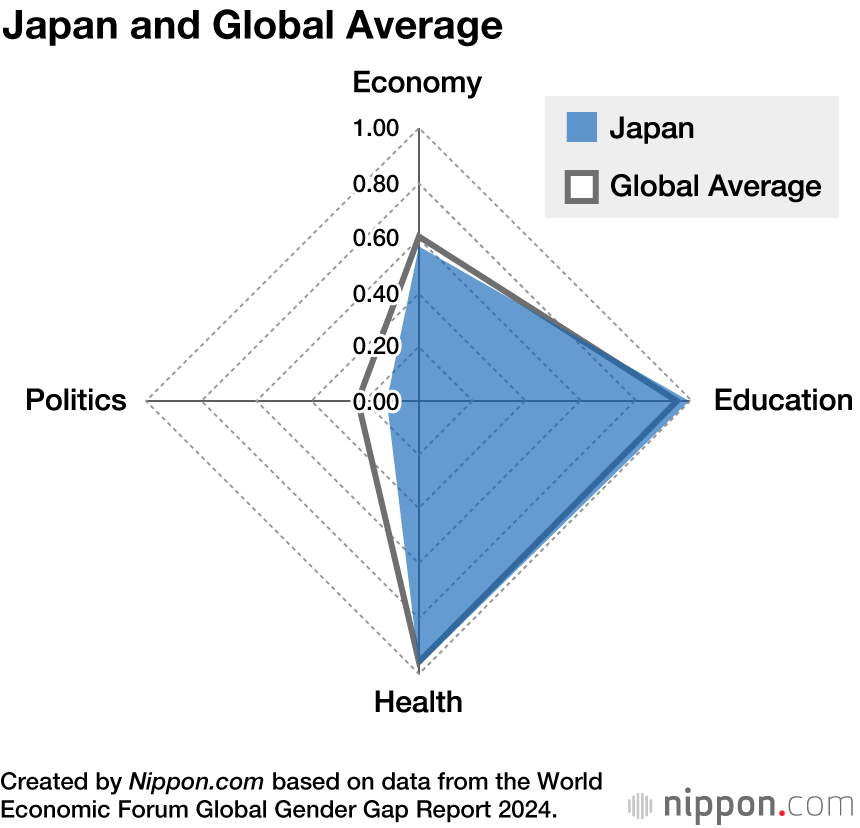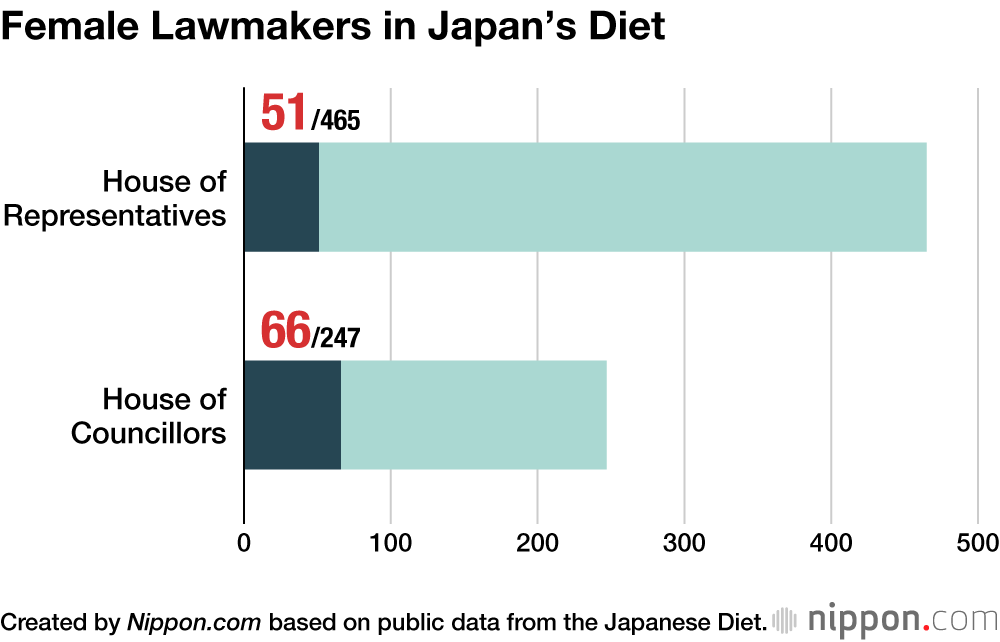
Japan Rises Slightly in 2024 Gender Gap Ranking
Gender and Sex Politics Society- English
- 日本語
- 简体字
- 繁體字
- Français
- Español
- العربية
- Русский
The Global Gender Gap Report issued by the World Economic Forum on June 12, 2024, ranked Japan 118th out of 146 countries in terms of gender equality, up seven places from the previous year.
The WEF report analyzes various statistical data on the status of women using four categories: economy, education, health, and politics. The gender gap index is based on 1.00 being the highest possible score, indicating that gender parity has been achieved, while 0.00 means complete gender disparity.
Among Group of Seven countries, Germany was ranked the highest in terms of gender equality, placing seventh overall in the world ranking, down one place from the previous year. Britain (14) was the next-highest G7 country, followed by France (22), Canada (36), the United States (43), and Italy (87). Among the G7 lineup, only Japan failed to place within the top 100 countries.
Some Improvement in Politics
In Prime Minister Kishida Fumio’s reshuffled cabinet of September 2023, there were 5 female ministers among the 19 total positions, a significant increase from the 2 women in August 2022, which led to a rise of 25 places in Japan’s ranking for politics, from 138th to 113th.
At the same time, there is still considerable room for further improvement. At present, there are just 2 female governors of Japan’s 47 prefectures: Koike Yuriko in Tokyo and Yoshimura Mieko in Yamagata Prefecture. Less than 5% of the country’s mayors are women, although gender parity is closer in the ku of central Tokyo, where 7 of the 23 municipalities will have female leaders after Seike Ai takes up her position as Minato mayor on June 28.
Only 11% of House of Representatives lawmakers are women, and even if one in four cabinet ministers are female, Kishida did not name a single woman among the 26 senior vice ministers and 28 parliamentary secretaries in his September 2023 selection. This was a first since the reorganization of government ministries in 2001.
Japan ranks low in the economy category, at 120th, reflecting such aspects as the low labor participation of women and the wage gender gap. Its rank fell from 47th to 72nd in the education category, placing distance between it and the many countries close to parity in this field.
2024 Global Gender Gap Index Rankings
| Rank (2023 Rank) | Country | Score |
|---|---|---|
| 1 (1) | Iceland | 0.935 |
| 2 (3) | Finland | 0.875 |
| 3 (2) | Norway | 0.875 |
| 4 (4) | New Zealand | 0.835 |
| 5 (5) | Sweden | 0.816 |
| 6 (7) | Nicaragua | 0.811 |
| 7 (6) | Germany | 0.810 |
| 8 (8) | Namibia | 0.805 |
| 9 (11) | Ireland | 0.802 |
| 10 (18) | Spain | 0.797 |
| 14 (15) | Britain | 0.792 |
| 22 (40) | France | 0.781 |
| 36 (30) | Canada | 0.761 |
| 43 (43) | United States | 0.747 |
| 74 (71) | United Arab Emirates | 0.713 |
| 87 (79) | Italy | 0.703 |
| 94 (105) | South Korea | 0.696 |
| 106 (107) | China | 0.705 |
| 118 (125) | Japan | 0.663 |
| 129 (127) | India | 0.641 |
| 135 (134) | Egypt | 0.629 |
| 146 (―) | Sudan | 0.568 |
Created by Nippon.com based on data from the World Economic Forum Global Gender Gap Report 2024.
(Translated from Japanese. Banner photo © Pixta.)


